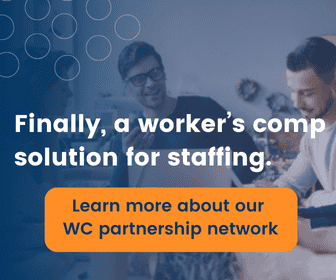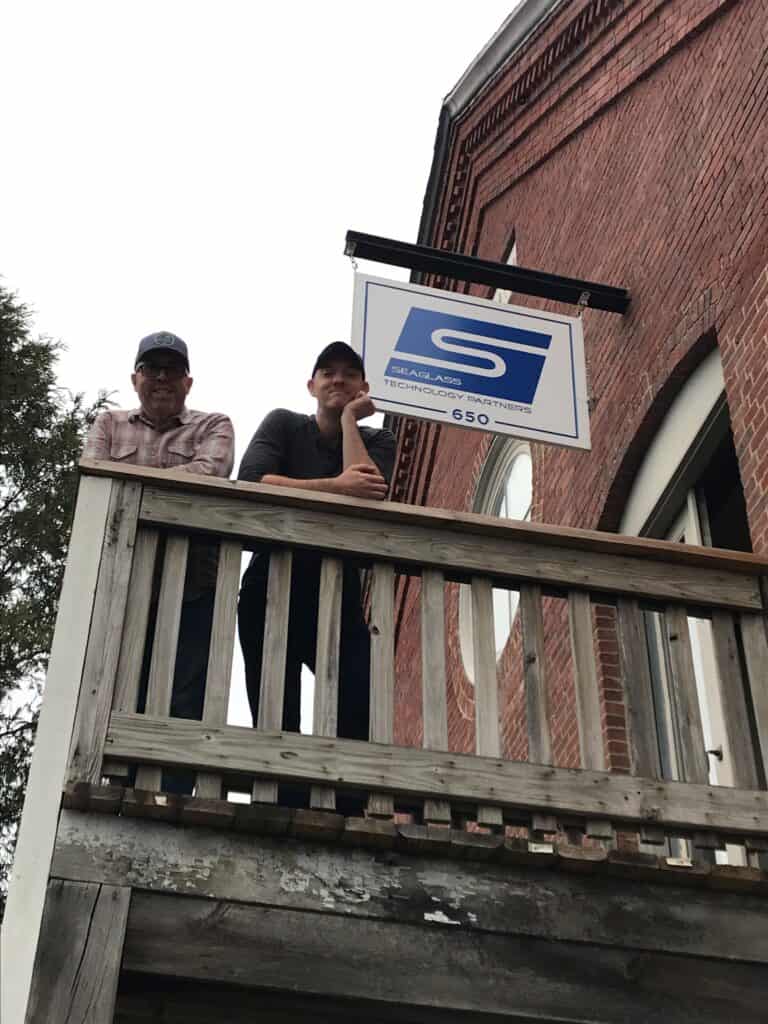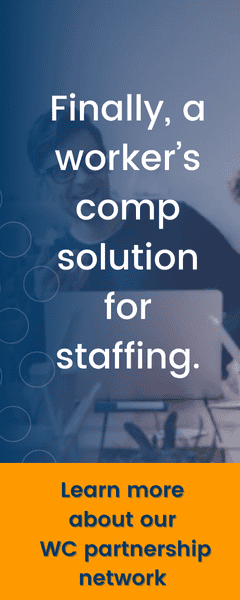How much does it cost to start a staffing agency?

Last time updated: August 28, 2025

For an entrepreneurial spirit with a little industry know-how, starting a staffing agency is one of the best and most rewarding things you can do. Staffing is a varied, competitive, high-energy field that rewards scrappiness and hard work. And it can be lucrative, too, depending on your vertical. Typical margins range from 14 and 41 percent, with a median of 25% across all temporary staffing.* According to IbisWorld, there are over 41,000 staffing agencies in the US and it’s a $150 billion dollar industry
If you are looking to start your own staffing agency, one of the main questions on your mind might be, how much is this going to cost me? Based on our 24+ year history of helping staffing firms grow – including many start-ups – we can help you answer that question.
Industry Outlook: Why Now Is a Good Time to Start
Despite economic uncertainty and post-pandemic shifts, the staffing industry has remained remarkably resilient. Many businesses are turning to flexible staffing solutions to manage fluctuating demand, and that’s where agencies shine.
Verticals like healthcare, IT, logistics, and government staffing are experiencing sustained or increasing demand. Meanwhile, hybrid and remote work models have opened up new sourcing and placement opportunities.
Perhaps most importantly, starting a staffing agency today is more accessible than ever. Thanks to remote-friendly business models, cloud-based technology, and outsourced back-office support, it’s possible to launch lean and scale smart—without the overhead that was once required.Despite economic uncertainty and post-pandemic shifts, the staffing industry has remained remarkably resilient. Many businesses are turning to flexible staffing solutions to manage fluctuating demand, and that’s where agencies shineVerticals like healthcare, IT, logistics, and government staffing are experiencing sustained or increasing demand. Meanwhile, hybrid and remote work models have opened up new sourcing and placement opportunitiePerhaps most importantly, starting a staffing agency today is more accessible than ever. Thanks to remote-friendly business models, cloud-based technology, and outsourced back-office support, it’s possible to launch lean and scale smart—without the overhead that was once required.
How much does it cost to start a staffing agency?
It typically costs anywhere from $3,000 to $250,000 to start a staffing agency. Depending on your location, size, and if you need an office, the costs can vary greatly. It also depends on how much you want to outsource and how fast you want to be up and running.
We tend to see three broad start-up cost categories for most new staffing owners:
DIY, $3-10K
In this category, owners will typically spend a few grand to get their firm up and running. It requires a lot of manual work where they are putting the pieces together on a shoestring budget and not outsourcing a ton.
This is the budget-conscious, bootstrapped model. You handle most aspects yourself—setting up the business, sourcing candidates, creating invoices, and more.
Pros: Very low cost; full control
Cons: Slower to launch; steep learning curve; time-intensive
Best for: Solo founders with staffing experience and limited capital
Timeline: 3–6 months to fully ramp
Hands-On but with Help, $11-34K
In this scenario, new owners are still hands-on in setting up the business, but probably hiring someone to do it properly.
This is a balanced approach. You still manage the business setup and operations but outsource many recruitment back office tasks like payroll processing and invoicing.
Pros: Faster to launch; access to expertise
Cons: Still requires personal involvement
Best for: Founders with mid-level capital and desire for efficiency
Timeline: 2–4 months
Outsource Everything: $35-250K
This is a scenario where a new owner has a decent amount of money to spend and will outsource everything possible in order to set up the business quickly and free up their time to focus on development.
Pros: Fastest path to market; lowest admin burden
Cons: Requires more capital upfront
Best for: Funded operators or serial entrepreneurs
Timeline: As little as 4–8 weeks
The types of costs you will have to take into account are:
- Office space/ rent
- Equipment and supplies
- Insurance
- Legal set-up expenses (entity foundation, contracts, etc.)
- Website development and set-up
- Software solutions such as payroll, HR, training, etc.
- Employee and freelancer costs
- Advertising and marketing
Recurring vs. One-Time Costs
One-time costs typically include your business formation, website build, and legal setup. Recurring costs include software subscriptions, marketing, insurance, and payroll.
Often Underestimated
We frequently see new owners underestimate insurance premiums, marketing budgets, and the time and cost of training on new software platforms.
Hidden Costs New Owners Often Miss
Even with a solid startup budget, there are a few sneaky costs that catch many new staffing owners off guard:
- Subscription Creep: Many new agencies end up with multiple overlapping software tools—keep an eye on what you’re actually using.
- Payroll Float: You’ll likely pay temps weekly, but your clients may take 30–60 days to pay.
- Job Board Spend: As you scale, so do your job post costs on platforms like Indeed or ZipRecruiter.
- Turnover Costs: Retraining and replacing internal or contract workers during the ramp-up phase can add up.
What are the steps I have to take to start a staffing agency?
To start your own staffing agency and have it be successful, there are certain steps you must take. Here are a few:
Determine Your Niche
As there are many types of staffing, the first step to starting your own firm is determining what kind of agency you are starting. Your passion and experience will help you determine this, as well as outside factors like competition and market.
Draft Your Business Plan
This step should not be overlooked – a business plan is your roadmap and is critical to success. A good business plan guides you through each stage of starting and managing your staffing business. We have a free template here as a place to get started.
Download our free Business Plan Template
Take Care of Legalities
Research the state requirements to become a business entity and fill out the proper paperwork. You will need the proper permits and licenses and also various insurances such as workers’ compensation. Note that when filing as an entity, your staffing agency name needs to be unique and descriptive!
Find a Location
If you have a physical location, you will need a good atmosphere in which to interview candidates and hold meetings. You need to consider lease costs and terms, accessibility, and client proximity.
Write Up Contracts and other Documents
A business lawyer will be able to help you draft contracts for the companies that will employ your services. There are also free example contracts online. Other helpful documents to have are employee handbooks, employment agreements, job descriptions, etc.
Raise Capital
IBeyond your start-up costs, you also need to consider unexpected expenses as well as meeting week-to-week payroll while your revenue is tied up in unpaid invoices. Invoice factoring is a common staffing industry service that can help.
Marketing and Advertising
Getting found online and having a great website are both extremely important in the digital age. A strong website should be mobile-first, SEO-optimized, and built to generate leads. Pair it with job boards, social media, paid search, and local outreach. Consider advertising tactics like direct mail, online ads, SEO, social media, and email campaigns. Outsourcing a freelancer or a local agency can help if you don’t have the bandwidth internally.
Building a Lean and Scalable Staffing Model
Start lean by outsourcing non-core tasks such as payroll processing, compliance, and marketing. This allows you to focus on high-impact, revenue-generating activities like business development and recruiting.
Invest early in cloud-based, integrated software so your systems can scale as you grow. Efficient tools today mean fewer growing pains later.
When to Bring in a Financial Partner
You may need outside capital or support when:
- You’re experiencing rapid growth
- Client payments are delayed
- You’re feeling cash flow stress due to payroll obligations
Payroll funding offers a flexible, debt-free alternative to loans. Advance Partners specializes in supporting startups with fast access to working capital and back-office support built for staffing firms.
Startup costs don’t need to be overwhelming when you have the right plan and partners in place. With flexible models, smart outsourcing, and financial support, many owners launch lean and scale fast.
Want help? Advance Partners offers tools and guidance to make your launch easier, including:
- Staffing Firm Invoicing Template
- Free Business Plan Template
- SWOT Analysis Tool
- Startup Pricing Calculator
FAQs: Starting a Staffing Agency
I hope this post helped answer questions you might have about the costs of starting a staffing agency. If you would like to set up a time to speak about payroll financing for your start-up firm and how we can help, please request a consultation. We also have resources like the Business Plan Template, SWOT Analysis template, and Pricing Calculator for start-ups.
Up Next















